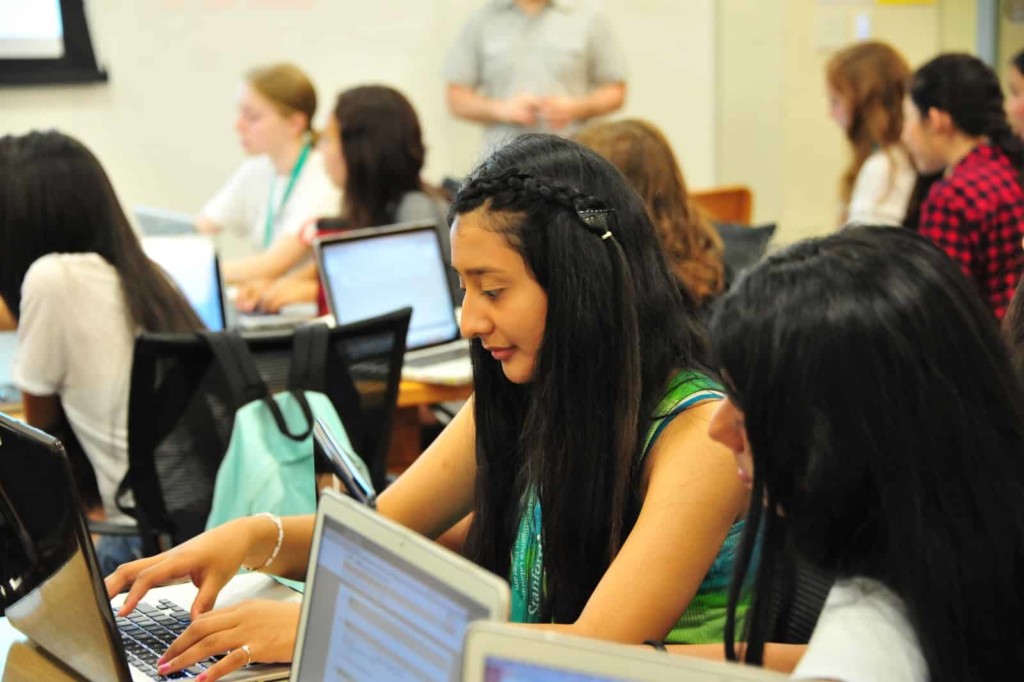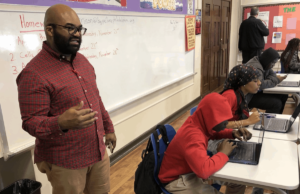AI4All Extends The Power of Artificial Intelligence to High School Girls

We recently released a report about The Future of Learning and Work. It recommended that communities hold conversations about the implications of artificial intelligence and that school districts and networks should be getting lean and agile, as well as updating their graduate profiles (listen to a podcast with Ken Kay for details).
The report also said it’s time to open-source AI tools and connect young people with expert guidance. Google and Microsoft have released some tools but they still require more experience to use than is present in most high schools.
The good news is that Tess Posner and the team at AI4ALL, a new Oakland nonprofit, are hard at work attacking this access problem.
Posner’s interest in education and social justice started as a teen while attending a startup charter school in Massachusetts. Tess traveled to El Salvador after an earthquake to build houses. She said, “The exposure to severe poverty blew my world right open.” She realized that opportunity is not equally distributed, but talent is.
She studied good books and math at St. John’s and earned a master’s in social entrepreneurship at Columbia. After grad school, Posner moved to San Francisco and helped Samasource develop, launch, and scale Samaschool to help people worldwide gain skills of the future and connect with the digital economy.
While running TechHire, an Obama administration initiative, Posner gained exposure to artificial intelligence. She saw expanding opportunity but a widening opportunity gap. Tess also observed increasing evidence of algorithmic bias creeping into systems and that (in a related problem) women and minorities were left out of STEM careers, especially computer science.
In 2015, Stanford’s Fei-Fei Li, Olga Russakovsky, and Rick Sommer started a summer camp to address the diversity crisis. The early programs, focused on high school girls, had incredible results including increased technical ability, connections to role models, and a sense of belonging in computer science and AI for participants.
A new nonprofit, AI4ALL, was formed last year to extend access to summer programs like the one launched by Li, Russakovsky, and Sommer–beginning with Stanford, Carnegie Mellon University, Berkeley, Princeton, Boston University, and Simon Fraser.
Summer programs for high school students last two or three weeks (applications are open now).
There are ongoing education opportunities for students year-round that pair researchers and students together to work on diverse problems.
The mission of AI4ALL, according to Posner, is to increase diversity and inclusion in the field and to make sure the benefits are widely shared by democratizing access to tools and involveing diverse voices in the field.
“We have an amazing community of partners, universities, and community groups,” said Posner.
She added, “We have seen alumni do incredible things.” Some start AI clubs at school. Three alumnae started creAIte, an effort to introduce middle school and high school girls to AI through neural art. An alumna won best paper at the Machine Learning for Health workshop at NIPS, the biggest machine learning conference, for her contribution on improving surgical technique.
The growing AI4ALL team will continue to deepen support for alumni, develop and open source more curriculum, and partner with groups including CSforAll and Code.org.
“Everyone should have access,” said Posner.
Tess and Tom are both speaking on AI next week at SXSWedu. If you’re headed to Austin, join Tom at his AI meetup on Tuesday, and then on Wednesday join Tess and three other thought leaders on the challenges and opportunities AI brings to education.
For more see:






0 Comments
Leave a Comment
Your email address will not be published. All fields are required.